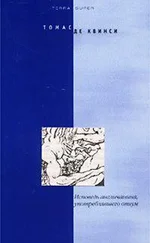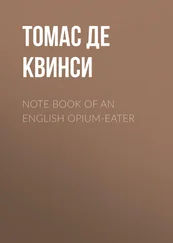Томас Де Квинси - Autobiographic Sketches
Здесь есть возможность читать онлайн «Томас Де Квинси - Autobiographic Sketches» — ознакомительный отрывок электронной книги совершенно бесплатно, а после прочтения отрывка купить полную версию. В некоторых случаях можно слушать аудио, скачать через торрент в формате fb2 и присутствует краткое содержание. Жанр: Биографии и Мемуары, literature_19, foreign_antique, на английском языке. Описание произведения, (предисловие) а так же отзывы посетителей доступны на портале библиотеки ЛибКат.
- Название:Autobiographic Sketches
- Автор:
- Жанр:
- Год:неизвестен
- ISBN:нет данных
- Рейтинг книги:4 / 5. Голосов: 1
-
Избранное:Добавить в избранное
- Отзывы:
-
Ваша оценка:
- 80
- 1
- 2
- 3
- 4
- 5
Autobiographic Sketches: краткое содержание, описание и аннотация
Предлагаем к чтению аннотацию, описание, краткое содержание или предисловие (зависит от того, что написал сам автор книги «Autobiographic Sketches»). Если вы не нашли необходимую информацию о книге — напишите в комментариях, мы постараемся отыскать её.
Autobiographic Sketches — читать онлайн ознакомительный отрывок
Ниже представлен текст книги, разбитый по страницам. Система сохранения места последней прочитанной страницы, позволяет с удобством читать онлайн бесплатно книгу «Autobiographic Sketches», без необходимости каждый раз заново искать на чём Вы остановились. Поставьте закладку, и сможете в любой момент перейти на страницу, на которой закончили чтение.
Интервал:
Закладка:
Let me pause in approaching a remembrance so affecting for my own mind, to mention, that, in the "Opium Confessions," I endeavored to explain the reason why death, other conditions remaining the same, is more profoundly affecting in summer than in other parts of the year—so far, at least, as it is liable to any modification at all from accidents of scenery or season. The reason, as I there suggested, lies in the antagonism between the tropical redundancy of life in summer and the frozen sterilities of the grave. The summer we see, the grave we haunt with our thoughts; the glory is around us, the darkness is within us; and, the two coming into collision, each exalts the other into stronger relief. But, in my case, there was even a subtler reason why the summer had this intense power of vivifying the spectacle or the thoughts of death. And, recollecting it, I am struck with the truth, that far more of our deepest thoughts and feelings pass to us through perplexed combinations of concrete objects, pass to us as involutes (if I may coin that word) in compound experiences incapable of being disentangled, than ever reach us directly , and in their own abstract shapes. It had happened, that amongst our vast nursery collection of books was the Bible, illustrated with many pictures. And in long dark evenings, as my three sisters, with myself, sat by the firelight round the guard 12 12 " The guard ."—I know not whether the word is a local one in this sense. What I mean is a sort of fender, four or five feet high, which locks up the fire from too near an approach on the part of children.
of our nursery, no book was so much in request among us. It ruled us and swayed us as mysteriously as music. Our younger nurse, whom we all loved, would sometimes, according to her simple powers, endeavor to explain what we found obscure. We, the children, were all constitutionally touched with pensiveness: the fitful gloom and sudden lambencies of the room by firelight suited our evening state of feelings; and they suited, also, the divine revelations of power and mysterious beauty which awed us. Above all, the story of a just man,—man, and yet not man, real above all things, and yet shadowy above all things,—who had suffered the passion of death in Palestine, slept upon our minds like early dawn upon the waters. The nurse knew and explained to us the chief differences in Oriental climates; and all these differences (as it happens) express themselves, more or less, in varying relations to the great accidents and powers of summer. The cloudless sunlights of Syria— those seemed to argue everlasting summer; the disciples plucking the ears of corn—that must be summer; but, above all, the very name of Palm Sunday (a festival in the English church) troubled me like an anthem. "Sunday!" what was that ? That was the day of peace which masked another peace deeper than the heart of man can comprehend. "Palms!" what were they? That was an equivocal word; palms, in the sense of trophies, expressed the pomps of life; palms, as a product of nature, expressed the pomps of summer. Yet still even this explanation does not suffice; it was not merely by the peace and by the summer, by the deep sound of rest below all rest and of ascending glory, that I had been haunted. It was also because Jerusalem stood near to those deep images both in time and in place. The great event of Jerusalem was at hand when Palm Sunday came; and the scene of that Sunday was near in place to Jerusalem. What then was Jerusalem? Did I fancy it to be the omphalos (navel) or physical centre of the earth? Why should that affect me? Such a pretension had once been made for Jerusalem, and once for a Grecian city; and both pretensions had become ridiculous, as the figure of the planet became known. Yes; but if not of the earth, yet of mortality; for earth's tenant, Jerusalem, had now become the omphalos and absolute centre. Yet how? There, on the contrary, it was, as we infants understood, that mortality had been trampled under foot. True; but, for that very reason, there it was that mortality had opened its very gloomiest crater. There it was, indeed, that the human had risen on wings from the grave; but, for that reason, there also it was that the divine had been swallowed up by the abyss; the lesser star could not rise before the greater should submit to eclipse. Summer, therefore, had connected itself with death, not merely as a mode of antagonism, but also as a phenomenon brought into intricate relations with death by scriptual scenery and events.
Out of this digression, for the purpose of showing how inextricably my feelings and images of death were entangled with those of summer, as connected with Palestine and Jerusalem, let me come back to the bed chamber of my sister. From the gorgeous sunlight I turned around to the corpse. There lay the sweet childish figure; there the angel face; and, as people usually fancy, it was said in the house that no features had suffered any change. Had they not? The forehead, indeed,—the serene and noble forehead,— that might be the same; but the frozen eyelids, the darkness that seemed to steal from beneath them, the marble lips, the stiffening hands, laid palm to palm, as if repeating the supplications of closing anguish,—could these be mistaken for life? Had it been so, wherefore did I not spring to those heavenly lips with tears and never-ending kisses? But so it was not . I stood checked for a moment; awe, not fear, fell upon me; and, whilst I stood, a solemn wind began to blow—the saddest that ear ever heard. It was a wind that might have swept the fields of mortality for a thousand centuries. Many times since, upon summer days, when the sun is about the hottest, I have remarked the same wind arising and uttering the same hollow, solemn, Memnonian, 13 13 " Memnonian ."—For the sake of many readers, whose hearts may go along earnestly with a record of infant sorrow, but whose course of life has not allowed them much leisure for study, I pause to explain—that the head of Memnon, in the British Museum, that sublime head which wears upon its lips a smile coextensive with all time and all space, an Aeonian smile of gracious love and Pan-like mystery, the most diffusive and pathetically divine that the hand of man has created, is represented, on the authority of ancient traditions, to have uttered at sunrise, or soon after as the sun's rays had accumulated heat enough to rarefy the air within certain cavities in the bust, a solemn and dirge-like series of intonations; the simple explanation being, in its general outline, this— that sonorous currents of air were produced by causing chambers of cold and heavy air to press upon other collections of air, warmed, and therefore rarefied, and therefore yielding readily to the pressure of heavier air. Currents being thus established by artificial arrangements of tubes, a certain succession of notes could be concerted and sustained. Near the Red Sea lies a chain of sand hills, which, by a natural system of grooves inosculating with each other, become vocal under changing circumstances in the position of the sun, &c. I knew a boy who, upon observing steadily, and reflecting upon a phenomenon that met him in his daily experience, viz., that tubes, through which a stream of water was passing, gave out a very different sound according to the varying slenderness or fulness of the current, devised an instrument that yielded a rude hydraulic gamut of sounds; and, indeed, upon this simple phenomenon is founded the use and power of the stethoscope. For exactly as a thin thread of water, trickling through a leaden tube, yields a stridulous and plaintive sound compared with the full volume of sound corresponding to the full volume of water, on parity of principles, nobody will doubt that the current of blood pouring through the tubes of the human frame will utter to the learned ear, when armed with the stethoscope, an elaborate gamut or compass of music recording the ravages of disease, or the glorious plenitudes of health, as faithfully as the cavities within this ancient Memnonian bust reported this mighty event of sunrise to the rejoicing world of light and life; or, again, under the sad passion of the dying day, uttered the sweet requiem that belonged to its departure.
but saintly swell: it is in this world the one great audible symbol of eternity. And three times in my life have I happened to hear the same sound in the same circumstances —namely, when standing between an open window and a dead body on a summer day.
Интервал:
Закладка:
Похожие книги на «Autobiographic Sketches»
Представляем Вашему вниманию похожие книги на «Autobiographic Sketches» списком для выбора. Мы отобрали схожую по названию и смыслу литературу в надежде предоставить читателям больше вариантов отыскать новые, интересные, ещё непрочитанные произведения.
Обсуждение, отзывы о книге «Autobiographic Sketches» и просто собственные мнения читателей. Оставьте ваши комментарии, напишите, что Вы думаете о произведении, его смысле или главных героях. Укажите что конкретно понравилось, а что нет, и почему Вы так считаете.












